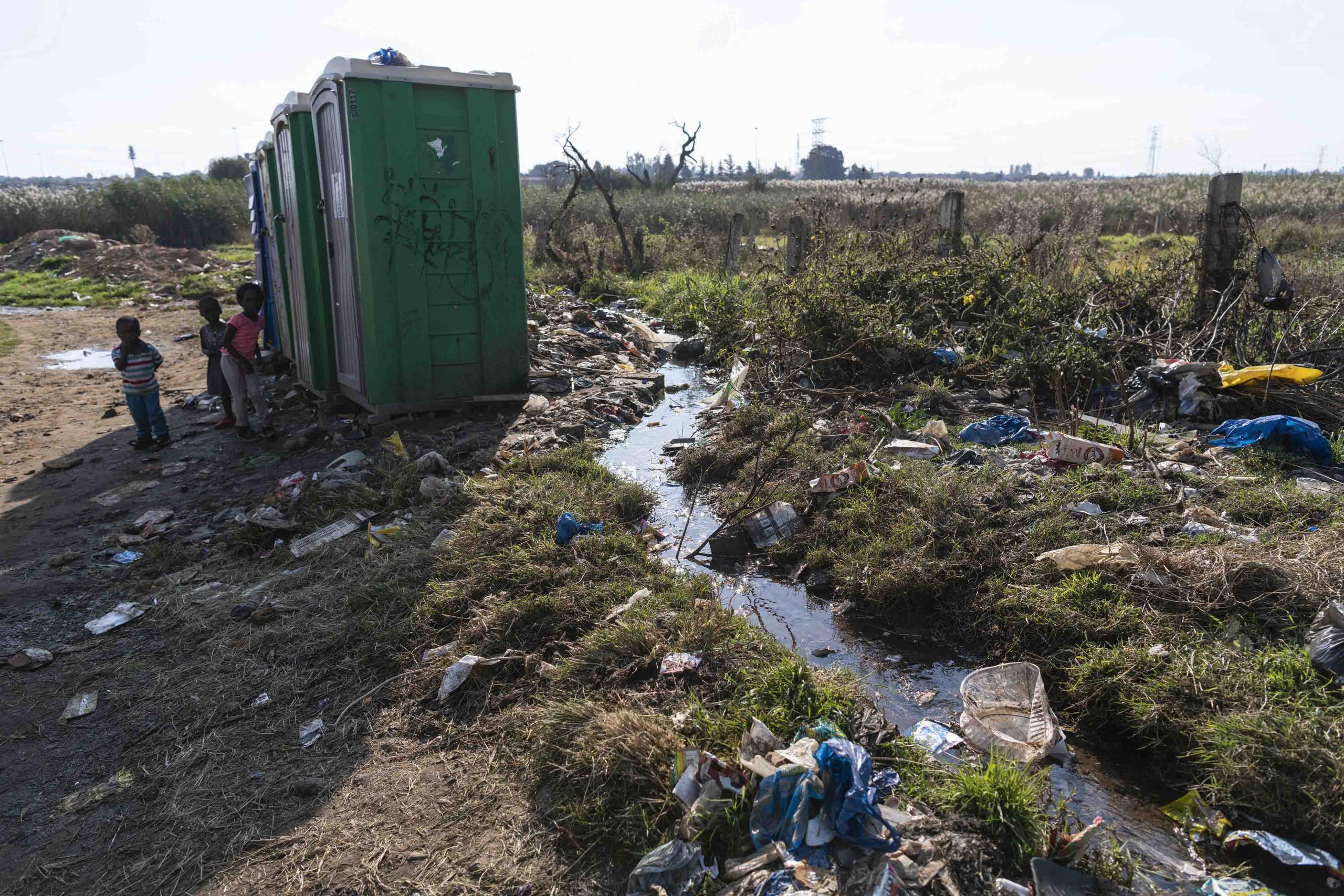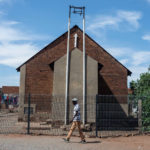Time for the ANC to pay its debt to history
Alexandra, Kliptown and Sharpeville – three names that ring with resistance and pride in South African liberation history. Yet despite their historical importance, these are neglected places in 201…
Author:
5 August 2019

Why is it that historic and politically significant townships are neglected and often overlooked and excluded when the seeds of development are planted?
In the build-up to the history-making 1994 elections Nelson Mandela campaigned using the slogan of “free water, electricity, education and housing for all”, but in 2019 this is still a dream for most.
In his reply to the debate on the state of the nation address, President Cyril Ramaphosa invoked the spirit of the Freedom Charter, reminding citizens of how it was adopted more than half a century ago as a document with “our shared vision of a just and equitable South Africa.”
Ramaphosa said the document – which underpins the Constitution and, he claims, the National Development Plan (NDP) – was drawn up at a “time when a majority of South Africans lived under conditions of repression, where their rights were denied and their opportunities for economic advancement were deliberately curtailed.”
Reality paints bleaker picture
The ugly truth is that the lived reality in many politically significant townships, including Kliptown where the Charter was signed, remains a material refutation of the speech as these townships are often left behind and almost wholly neglected in terms of development.
There has been a serious challenge in providing services and dealing with impoverishment, particularly in Sharpeville, Alexandra and Kliptown – townships which boast a rich history of resistance and political legacy.
In some instances, most residents are far from opportunities for economic advancement, and they still endure egregious living and social conditions.
Many have become disillusioned and see through the crude politicking used during elections to garner votes. Having woken up to the evident reality that their rights have not been and continue not being realised, many have lost faith in the ruling party’s ability to provide for them.
Related article:
Apart from sharing a painful history marked by bloodshed, neglect and maladministration, the three townships have staged shutdowns, with Kliptown most recently holding a mid-July protest against evictions from the Kliptown Flats. This a month after ANC Secretary-General Ace Magashule had visited the township to commemorate the 64th anniversary of the signing of the Freedom Charter.
Alexandra was also the source of protests between April and June, and a shutdown was staged around issues including what some described as “the mushrooming of illegal structures”, a lack of development and poor roads, blocked sewers and potholes.
A shutdown was staged in pothole-infested Sharpeville during the Sharpeville Massacre commemorations. Votes were withheld during the general election, with residents resentful that their constitutional rights had not materialised, or had been awarded at a glacial pace, or only through extreme political expediency.
Emfuleni – under which Sharpeville falls – was excluded from the Auditor-General’s 2017/2018 analysis because the audit outcome had not been finalised on time owing to safety concerns in the area.
Past brighter than present?
Since democracy, only a few can truly say their townships have changed for the better in the face of dramatic increases in population growth. There is a chronic lack of investment, and where there has been limited commercial investment, it has scarcely benefited residents.
The bus boycott campaigns in Alexandra in the 1940s and 1950s had a profound effect on Mandela, who was living there at the time. “In a small way, I had departed from my role as an observer and become a participant. I found that to march with one’s people was exhilarating and inspiring,” he said of that time.
It is extraordinary that the township that propelled him fully into activism is now so neglected that the prospect of residents receiving even basic services seems as futile as reaching for the stars with bare hands.
Related article:
What is the possibility of the former home of struggle veteran Charlotte Maxeke being restored when Kliptown itself has not received a well-deserved makeover? Although the Maxeke house still bears a broken sign put up by the City of Johannesburg declaring it a heritage site, the ANC is yet to upgrade it. Another board outside the house proclaims that it was due for renovation as far back as 2012.
Kliptown residents rightfully lamented the renovation of one home in the face of the deplorable conditions of their own homes and of the dusty, rubbish-strewn streets of the township.
Basics lacking
In Kliptown, the problems run beyond the aesthetics. The township has a lack of access to basic services that improve lives. Kliptown has been in existence since 1904, which means it’s a terrible shame that even today it still has no library, clinic or school. Yet two huge multimillion-rand towering presences, Walter Sisulu Square and Soweto Hotel, which the community cannot access, dominate the area – and eject dirty water that carves its way through the township, leaving a foul stench.
In Sharpeville, the situation is not any better. If you are there during the annual commemorations of the massacre, you may be insulated from the dismal sight of heaps of uncollected rubbish and uncut grass on the corner of each street. If you are there at any other time of the year, when there is no celebration worthy of political expediency, you are lucky to make it through the crater-like potholes that plague the roads.
As part of Mandela month, MEC Jacob Mamabolo launched a two-week pothole-patching project in the Sedibeng District, which has had minimal success as the huge potholes are still an indelible feature of Sharpeville.
Related article:
Other attempts have been made to develop townships across the province, but in addition to problems around service provision, various other issues arise including political instability, administrative lapses, poor financial management and poorly maintained and decaying infrastructure.
During his state of the province address, Premier David Makhura said MEC Lebogang Maile would present a plan on urban renewal projects in Alexandra and Kliptown, pledging to return to the townships within two months to give feedback to communities on plans to take the projects forward.
The renewal projects have often not taken off. Where they have, there has not been much fruit for those in dire need of the benefits of township revitalisation because of continuing bureaucratic delays and corruption.
Bureaucratic ping-pong
What is evident is that people have always adapted and made means where possible. In one part of Sharpeville, residents hungry for land ended up living right on top of a gravesite.
Alexandra, established as a “native town” eight years after Kliptown, has regressed. Even politicians who grew up there have called it a place “that is not sustainable for human development.”
These are townships that house extraordinary political history and memory, and yet there is no urgency or political will to preserve and develop them. Calling out any corruption in the renewal projects seems a futile exercise because one is often caught in a ping-pong blame game between different departments and organs of state.
Although the old houses in these townships are crumbling, they are still standing. In many townships across South Africa, RDP houses that are barely two years old are already falling apart, paint chipping, the exposed powdery cement eroding and the ceiling shaking dangerously during strong winds.
Related article:
Infrastructure conditions have perhaps not improved owing to the financial state of municipalities, which has declined immensely. The latest figures from the 2017/2018 Auditor-General’s local government audit reveal that clean audits are not an aspiration of many municipalities, despite the scores of people who rely on local government to govern effectively and deliver much-needed services.
Gauteng had only one municipality with a clean audit, and as President Ramaphosa noted as a concern, there is no accountability where there is corruption and no delivery.
The audit report highlighted numerous failures in development and maintenance of infrastructure: many municipalities have no existing policies on maintenance and have not assessed the conditions of their infrastructure.
Backlogs
In a 2007 report the National Treasury stated that “today’s infrastructure requirements are tomorrow’s backlogs”. Today, that appears to be the case with government officials constantly using “backlogs” as the reason behind lack of decent roads, housing and electricity.
The Auditor-General’s report stated that “low capital spending has potentially serious implications for the government’s ability to meet targets for expanded access to water, sanitation, electricity and job creation.
“There are areas where we picked up that there was no proper supervision on projects, hence additional expenditure being incurred.”
Such is the case with the Alexandra Renewal Project that stakeholders are now scurrying to resuscitate by pumping more money into, despite the incomplete projects having been assigned budget already.
These townships are not just places with extraordinary political and historical significance. They are also home to many people. Their neglect is disgraceful and cannot be allowed to continue.




